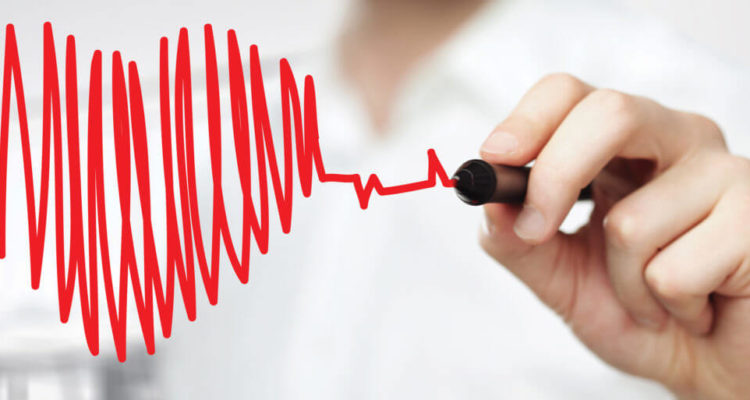
The cardiologist explained what diseases the pulse can tell about
0
It is quite difficult for a person without a medical education find out for yourself if his heart is working properly. Dr. Leslie Tay, a cardiologist who practices at Mount Elizabeth Novena Hospital in Singapore, explained how measuring your pulse can help in this case.
How to measure your pulse
The index and middle fingers must be pressed against the neck on the side of the trachea. Alternatively, you can place two fingers between the bone and tendon above the radial artery, which is located on the thumb side of the wrist.
When you feel your pulse, count the number of beats in 15 seconds. Multiply that number by four to calculate the number of beats per minute, Tay advised.
What is a normal heart rate?
A normal heart rate is rest for older children and adults (aged 10 years and older) is 60-100 beats per minute. Children (aged 5-6 years) have a normal resting heart rate of 75-115 beats per minute, mountelizabeth writes. It is quite natural that the heart rate gradually slows down closer to adolescence, the doctor emphasized.
For comparison:
- the norm for a child from 1 to 10 months is 80-169 beats per minute;
- after 18 years, the range from 55 to 80 beats per minute.
Heart beats too fast
Doctors call this condition tachycardia. Often, the pulse noticeably increases after physical exertion, due to high temperature or stress. During an episode of tachycardia, the heart beats at least 100 beats per minute and can reach 300 beats per minute. These episodes can start and end quickly, and the person sometimes doesn't notice any symptoms.
However, the condition becomes a problem when it happens frequently, lasts too long, or causes symptoms such as dizziness, shortness of breath, fainting, pain, or shame in the chest. “A fast resting heart rate can indicate the onset and progression of heart disease,” Tay warned.
The heart is beating too slowly
When the heart at rest it beats very slowly, doctors call it bradycardia. For most people, the resting heart rate is 60-100 beats per minute. If the heart beats less than 60 times per minute, this is not the norm, the doctor explained.
According to the cardiologist, bradycardia can be caused by changes in the heart as a result of aging, heart diseases (for example, coronary heart disease or a heart attack ), problems with the thyroid gland, or the use of drugs to treat heart problems or hypertension.









Leave a Reply